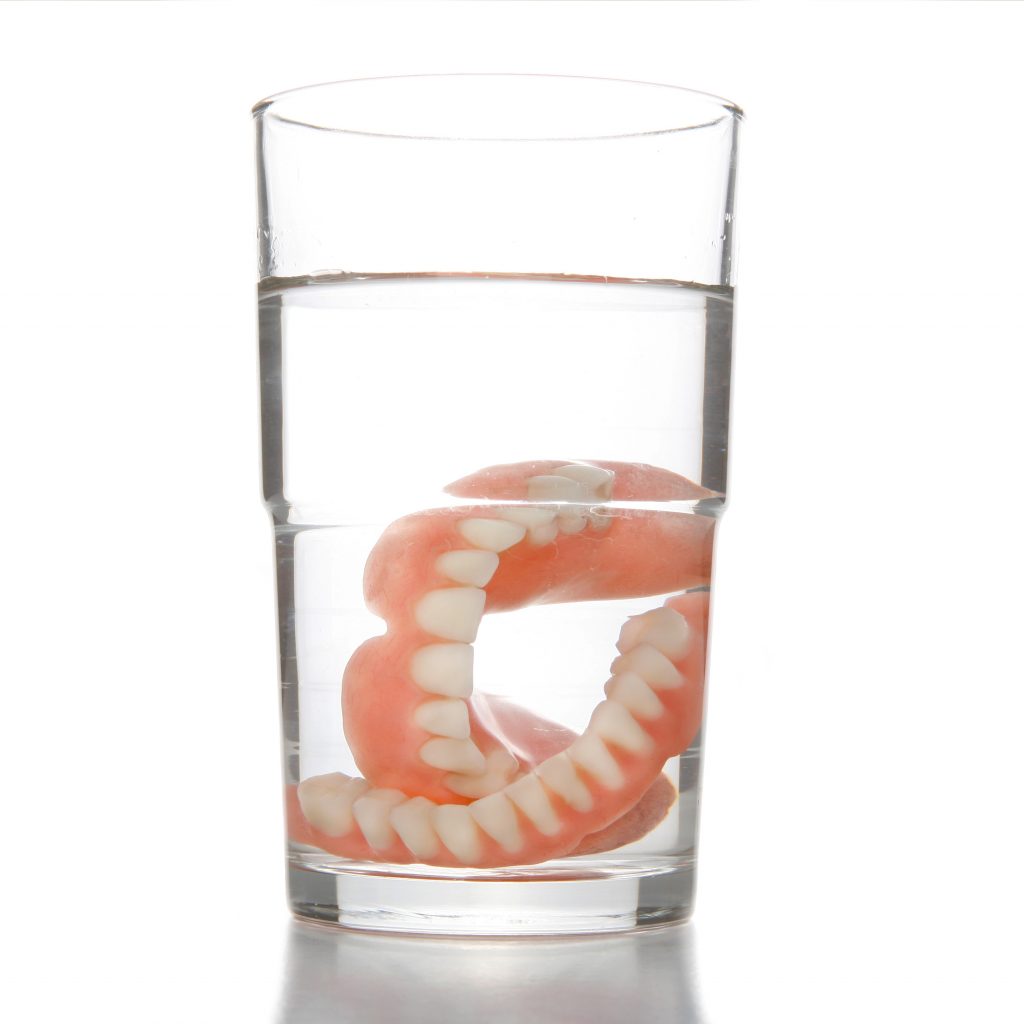
Dentures can be a wonderful tooth replacement option for many patients. They look and feel natural, restoring your smile to completeness no matter how many teeth you have lost. Yet even with all their benefits, dentures can still be a bit difficult to adjust to right at first — including when it comes to eating. Below, you’ll learn our top 5 tips for eating with dentures in Burlington. Take heed and you will be back to relishing your favorite meals in no time!
#1: Start With a Liquid Diet
Your mouth will be going through a lot in the first few days wearing a new denture. You may notice excessive saliva production, soreness, and difficulty speaking. To make things easier on yourself, concentrate on a liquid diet right at first. Soup, scrambled eggs, mashed potatoes, yogurt, and other items are great for starting off with dentures.
Tip: Avoid hot temperatures, as your mouth won’t be registering them properly in the first few days. Desensitization can lead to burns.
#2: Cut Small Pieces, Take Tiny Bites
Once you are ready to transition away from the liquid diet by incorporating more hard foods into each meal, start slow. Cut each piece of food into very small pieces to ensure that you are taking the smallest bites possible. This will help you adjust to eating with your new dentures and also keep you safe from accidentally choking.
Tip: Don’t start out with a ribeye right away — tender items like fish, softer bread, and similar foods make for better practice with your new teeth.
#3: Chew Slowly
This will probably come naturally, but make sure you are chewing your food carefully. Doing so can help you adjust to the feeling of chewing with dentures. It will also further protect you against the risk of choking.
Tip: Count your chews to help you stay on track — depending on what you are eating, 10 per bite should do it.
#4: Distribute Food Evenly
Even though you may feel like your denture is more stable in a certain area of your mouth, distributing the food throughout the bite will help keep them stable and speed up the adjustment phase as well.
Tip: Avoid biting directly into food with a denture. Slice apples and other fresh fruits and vegetables into thin bites to enjoy safely.
#5: Don’t Give Up
Adjusting to a denture can be difficult, but the most important thing is to persist! It will feel different and will likely affect everything from what you eat to how your food tastes, but only temporarily. Pretty soon, you will be back to eating your normal diet — the one you had before tooth loss!
Tip: Be patient, but don’t hesitate to get in touch with your dentist if you experience unusual discomfort or symptoms that last longer than several months. Loose dentures can be fixed!
Meet the Practice
Complete Dental Care offers just that — comprehensive dentistry for patients of all ages. If you are looking for an excellent general, cosmetic, or restorative dentist in Burlington, do not hesitate to get in touch with their office by calling (781) 272-0441.







